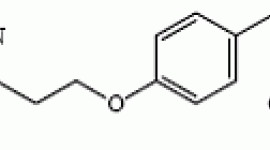Tolinase Diabetes Type 2 Treatment - Tolazamide Patient Information
Brand name: Tolinase
Generic name: Tolazamide
Tolinase, tolazamide full prescribing information
What is is Tolinase and what is it prescribed for?
Tolinase is an oral antidiabetic drug available in tablet form. It lowers the blood sugar level by stimulating the pancreas to release insulin. Tolinase may be given as a supplement to diet therapy to help control type 2 (non-insulin-dependent) diabetes.
There are two type of diabetes: type 1 (insulin-dependent) and type 2 (non-insulin-dependent). Type 1 diabetes usually requires insulin injection for life; type 2 can usually be controlled by dietary changes, exercise, and oral diabetes medications. Occasionally—during stressful periods or times of illness, or if oral medications fail to work—a type 2 diabetic may need insulin injections.
Most important fact about Tolinase
Always remember that Tolinase is an aid to, not a substitute for, good diet and exercise. Failure to follow a sound diet and exercise plan can lead to serious complications, such as dangerously low blood sugar levels. Remember, too, that Tolinase is not an oral form of insulin, and cannot be used in place of insulin.
How should you take Tolinase?
Remember that if you are diligent about diet and exercise, you may need Tolinase for only a short period of time. Take it exactly as prescribed.
While you are taking Tolinase, your blood and urine glucose levels should be monitored regularly. Your doctor may also want you to have a periodic glycosylated hemoglobin blood test, which will show how well you have kept your blood sugar down during the weeks preceding the test.
- If you miss a dose...
Take it as soon as you remember. If it is almost time for the next dose, skip the one you missed and go back to your regular schedule. Do not take 2 doses at the same time.
- Storage instructions...
Store at room temperature.
What side effects may occur with Tolinase?
Side effects cannot be anticipated. If any appear or change in intensity, inform your doctor as soon as possible. Only your doctor can determine if it is safe for you to continue taking Tolinase. The most frequently encountered side effects from Tolinase—nausea, a full, bloated feeling, and heartburn—may disappear if the dosage is reduced.
Hives, itching, and rash may appear initially and then disappear as you continue to take the drug. If a skin reaction persists, you should stop taking Tolinase.
Why should Tolinase not be prescribed?
Do not take Tolinase if you are sensitive to it or have ever had an allergic reaction to it; if you are suffering from diabetic ketoacidosis (a chemical imbalance leading to nausea, vomiting, confusion, and coma); or if you have type 1 (insulin-dependent) diabetes and are not taking insulin.
Special warnings about Tolinase
It's possible that drugs such as Tolinase may lead to more heart problems than diet treatment alone, or diet plus insulin. If you have a heart condition, you may want to discuss this with your doctor.
Like other oral antidiabetic drugs, Tolinase may produce severe low blood sugar (hypoglycemia) if the dosing is wrong. While taking Tolinase, you are particularly susceptible to episodes of low blood sugar if:
- You suffer from a kidney or liver problem;
- You have a lack of adrenal or pituitary hormones; or
- You are older, run-down, or malnourished.
- You are at increased risk for a low blood sugar episode if you are hungry, exercising heavily, drinking alcohol, or using more than one glucose-lowering drug.
Note that an episode of low blood sugar may be difficult to recognize if you are an older person or if you are taking a beta-blocker drug (Inderal, Lopressor, Tenormin, and others).
If switching to Tolinase from chlorpropamide (Diabinese), you should take special care to avoid an episode of low blood sugar.
Stress such as fever, trauma, infection, or surgery may increase blood sugar to the point that you require insulin injections.
Possible food and drug interactions when taking Tolinase
If Tolinase is taken with certain other drugs, the effects of either could be increased, decreased, or altered. It is especially important to check with your doctor before combining Tolinase with the following:
- Airway-opening drugs such as Sudafed and Ventolin
- Alcohol
- Aspirin or related drugs
- Beta-blocking blood pressure medications such as Inderal and Lopressor
- Blood-thinning drugs such as Coumadin
- Calcium channel blockers such as Calan and Isoptin
- Chloramphenicol (Chloromycetin)
- Corticosteroids such as Cortef, Decadron, and Medrol
- Diuretics such as Esidrix and Diuril
- Estrogens such as Premarin and Estraderm
- Isoniazid (Nydrazid)
- MAO inhibitors (antidepressants such as Nardil and Parnate)
- Miconazole (Monistat)
- Nicotinic acid
- Nonsteroidal anti-inflammatory drugs such as Motrin and Naprosyn
- Oral contraceptives
- Phenothiazines (antipsychotic drugs such as Mellaril)
- Phenytoin (Dilantin)
- Probenecid
- Rifampin (Rifadin)
- Sulfa drugs such as Bactrim and Gantrisin
- Thyroid drugs such as Synthroid
Special information if you are pregnant or breastfeeding
If you are pregnant or plan to become pregnant, inform your doctor immediately. Tolinase is not recommended for use during pregnancy, and should not be prescribed if you might become pregnant while taking it.
Control of diabetes during pregnancy is very important, but in most cases it should be accomplished with insulin injections rather than oral antidiabetic drugs.
Tolinase should not be used during breastfeeding because of possible harmful effects on the baby. If you are a new mother, you may need to choose between taking Tolinase and breastfeeding your baby.
Recommended dosage for Tolinase
Your doctor will determine the dosage level based on your needs.
Adults
The usual starting dose of Tolinase tablets for the mild to moderately severe type 2 diabetic is 100 to 150 milligrams daily taken with breakfast or the first main meal.
Older Adults
If you are malnourished, underweight, an older person, or not eating properly, the initial dose is usually 100 milligrams once a day. Failure to follow an appropriate dosage regimen may precipitate hypoglycemia (low blood sugar). If you do not stick to your prescribed dietary regimen, you are more likely to have an unsatisfactory response to Tolinase.
Overdosage
An overdose of Tolinase can cause an episode of low blood sugar. Mild low blood sugar without loss of consciousness should be treated with oral glucose, an adjusted meal pattern, and possibly a reduction in the Tolinase dosage. Severe low blood sugar, which may cause coma or seizures, is a medical emergency and must be treated in a hospital. If you suspect an overdose of Tolinase, seek medical attention immediately.
last updated: 04/2006
Tolinase, tolazamide full prescribing information
Detailed Info on Signs, Symptoms, Causes, Treatments of Diabetes
back to: Browse all Medications for Diabetes
APA Reference
Staff, H.
(2006, April 30). Tolinase Diabetes Type 2 Treatment - Tolazamide Patient Information, HealthyPlace. Retrieved
on 2026, January 3 from https://www.healthyplace.com/diabetes/medications/tolinase-tolazamide-diabetic-treatment


